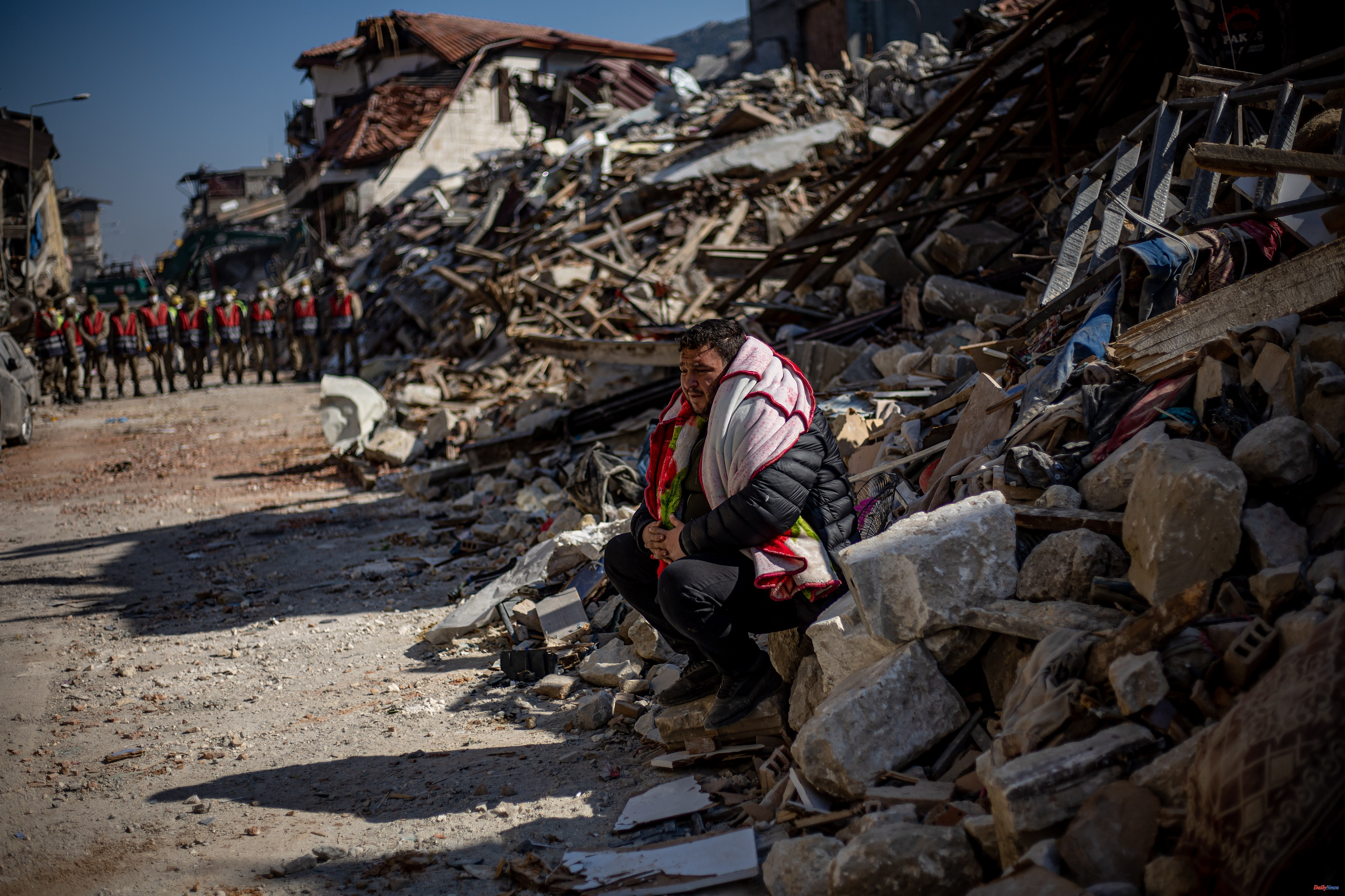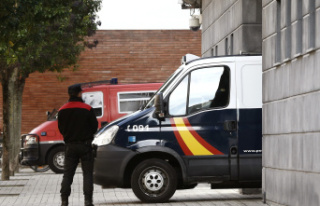Ferhat and his family were the neighbors of the fifth of the Çetin Faruk apartments until February 6. The magnitude 7.8 earthquake that struck Turkey that day broke the walls, facade and windows of his home. Ferhat feels lucky not to have lost any relatives in the earthquake, which already has 36,148 deaths and more than 105,000 injuries. His building didn't collapse but it's clear he can't go back. Part of the façade has been detached and there are areas where the building does not connect with the ground. From one of the windows of the building you can see broken walls and part of the roof is missing.
The Turkish authorities announced that they are going to check all the buildings in the area affected by the earthquake to see if the structures that remain are habitable or should be demolished. In Osmaniye they have begun to examine them and at the moment there are already more than 8,000 buildings that must be urgently demolished. In this process that is presumed to be long, Ferhat has preferred to go to his house for his things, at the risk of the building falling on him. "The staircase to the first floor is broken. We have been carefully removing the furniture little by little from the fifth for several hours," he says. "We have taken the furniture and memories. We have left the electrical appliances there because they weigh a lot and it scares us," he describes.
In the most affected neighborhood, Rahime Hatun, everyone knows each other. Everyone knows who made it out of the house, who has been rescued and even who died on their doorstep when the building collapsed on them. The neighbors drink tea in the corners without knowing exactly what to do or where to go. "For now we will leave our furniture in a warehouse. I still don't know where we will go," he laments. In a perpendicular street several neighbors equipped with cranes, take out their furniture through the broken windows of the buildings. Others take turns guarding for fear that someone will come to loot their homes.
A few streets over, at the Bilge Apartments, a nine-story building, completely collapsed. After finishing the rescue work, they removed the rubble and in a corner, there was a mountain of belongings of the families that lived in the building. Clothes, photographs and various books. A couple of neighbors look at the photographs and try to recognize the residents of the building. Another man, who lost his wife and his son in the Bilge Apartments collapse, recognizes one of his son's sweaters. He hugs him silently and leaves.
A few streets further on, the police have blocked the way to an urbanization of forty buildings that are at risk of collapse. Four buildings in the urbanization collapsed due to the earthquake, causing more than one hundred deaths. Several neighbors look at the other side of the police tape with frustration, for having lost relatives, neighbors, having to leave their homes behind and having only what they had on them when they ran out.
"I remember the earthquake with a lot of violence. It woke us up, the bed was bouncing. I got up to get my children, a wall collapsed, I fell to the ground and I got up running. When I remember it, my hands shake," explains Cumali. This young man has built his own tent near his house and there he lives with his wife and his five children. The earthquake has stopped life in this neighborhood of Osmaniye and for the moment he has not returned to work in the markets where he sells vegetables. "I went into the building several times afterwards to take some blankets, a stove, to at least spend the days in the store," he explains.
The authorities of the province have announced the creation of a center to collect furniture and souvenirs from the collapsed buildings, catalog them and preserve them until their owners return for them. However, many neighbors are wary and prefer to collect their most precious objects themselves.
Thousands of residents have gone to live in the surrounding towns or with close relatives. Others have had no choice but to wait in a tent. Near the train station, in a sports complex, the AFAD rescue teams have erected hundreds of tents, where they welcome 10,000 people. In just a few days, a new ecosystem has been created, in which citizens enter the complex saying their store number at the entrance, guarded by the police. There are meal times, cleaning and mobile charging. At night, the neighbors gather around a bonfire while the children play with balloons. The little ones forget for a moment that they are not at home.
According to the criteria of The Trust Project












